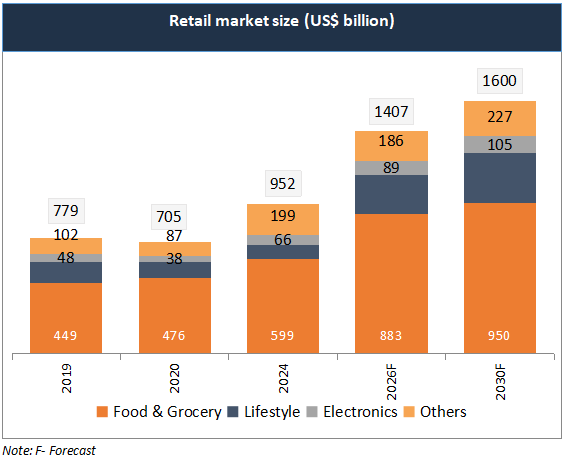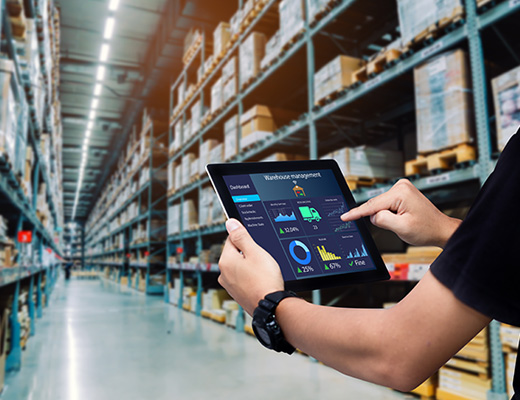Advantage India
Robust
Demand
*Reliance Industries, India’s largest retailer, stated that the country is set to emerge as the world’s third-largest retail market by 2030, supported by government initiatives aimed at enhancing disposable incomes and driving consumption.
*India’s retail sector is on track to exceed Rs. 1,37,10,400 crore (US$ 1.6 trillion) by 2030 from Rs. 81,57,859 crore (US$ 952 billion) in 2024.
*India’s organised retail sector is expanding rapidly. It is projected to reach Rs. 19,70,870 crore (US$ 230 billion) by 2030 from Rs. 11,31,108 crore (US$ 132 billion) in 2024, driven by rising disposable incomes and evolving consumer preferences, according to a Deloitte-Retailers Association of India (RAI) report.
*As of FY25, India’s has the third highest number of e-retail shoppers globally.
Innovation
In Financing
* Collective efforts of financial houses and banks with retailers are enabling consumers to go for durable products with easy credit.
* India’s consumer and retail sector closed 139 deals worth Rs. 32,562 crore (US$ 3.8 billion) in Q1 CY25 marking a 65% surge in deal volume and a 29% rise in value over the previous quarter, led by major deals such as Temasek’s Rs. 8,569 crore (US$ 1 billion) investment in Haldiram’s and Wilmar International’s Rs. 12,339 crore (US$ 1.4 billion) acquisition of Adani Wilmar’s staples business.
Increasing
Investments
* Due to India’s wealth of resources, availability of labor at relatively low costs, and special investment wages such tax breaks, etc., foreign corporations prefer to invest here.
* India’s retail trading sector attracted Rs. 41,645 crore (US$ 4.86 billion) FDIs between April 2000-June 2025.
* In August 2025, Reliance Retail announced plans to invest Rs. 40,000 crore (US$ 4.67 billion) over three years to set up Asia’s largest integrated food parks, leveraging AI, robotics and sustainable technologies to drive its target of Rs. 1,00,000 crore (US$ 11.67 billion) in annual FMCG revenue.
Policy
Support
* To improve the business climate and make it simpler for foreign companies to register fully owned subsidiaries in India, the Indian government has implemented a number of rules, regulations, and policies.
Retail India

Industry Contacts
IBEF Campaigns
MORE
Aatmanirbhar Bharat Utsav 2024
Union Minister of External Affairs, Dr. S. Jaishankar and Union Commerce an...
Case Studies
MOREIBEF BLOG
MOREIndia's Developer Boom: Building the Future with AI and Innovation
India's developer community has reached an inflection point. With 17 mi...
IndiaAI Mission: Democratizing access to AI compute
The world is experiencing an intelligence revolution driven by artificial i...
Growing Power of India’s DIIs
India’s equity markets are experiencing a major structural shift. Dom...















